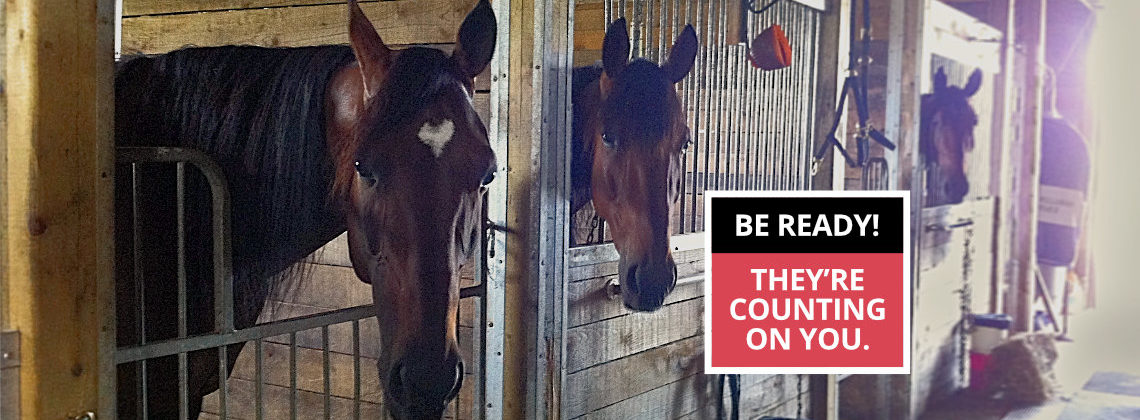Fire & Emergency Preparedness – Fall ’21
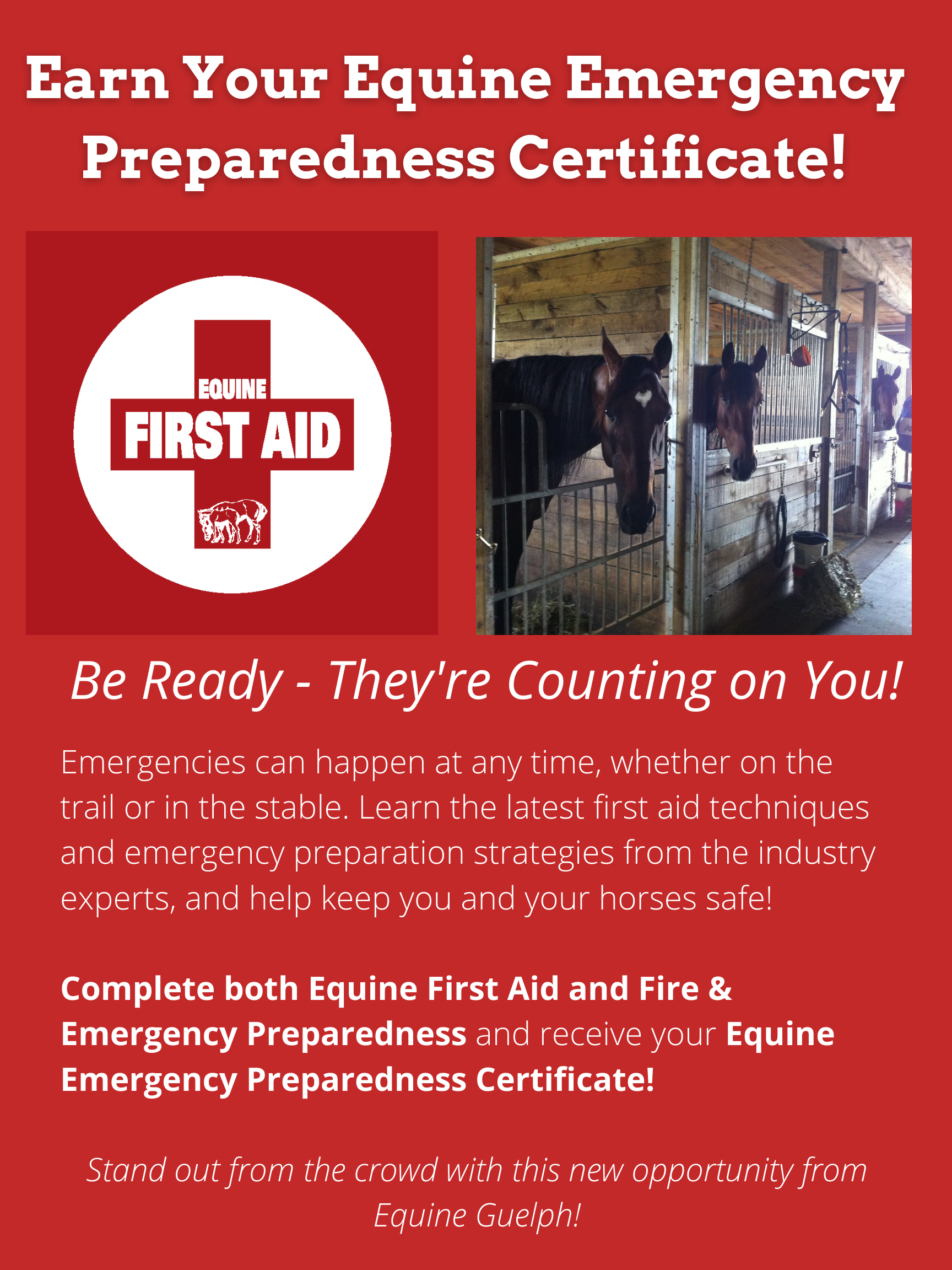
To receive your Equine Emergency Preparedness Certificate:
- Register and complete two short online courses on The Horse Portal: Equine First Aid, and Fire & Emergency Preparedness
- Once you have completed both courses, you will automatically receive your Equine Emergency Preparedness Certificate!
- Special offer this Fall! SAVE $50 by registering for both courses at once. Choose the ‘Emergency Preparedness Certificate’ registration option below. You will then be registered for Equine First Aid Fall 2021 – a confirmation email will be sent to you within 48 hours of registration. NOTE: No additional discounts can be applied to this special offer.
- Note: Already completed one of these short courses before? No worries – your prior course completion will count towards your Certificate. Complete the course you are missing, and then send an email to [email protected] to receive your Certificate!
The goals of this course are to help you;
- to reduce the risk of fire from occurring on your farm by recognizing best management practices
- to conduct a self assessment of your farm and create your own safety plans
- to contact your local fire department and identify local resources
- to gain an understanding of what you should do in the event of a farm fire
- to identify disasters that you may face in your geographical region to create your own disaster plan
Time Commitment:
- Occurs over a 1 week period
- 5-10 hour commitment is required during this period
- No set times to be online during the week
- Recommended you visit the course site at least 5 times a week, preferably once or more each day
- Course is entirely online, so travel to the University of Guelph is NOT required
- Guest expert/facilitator-led course over a 1-week period
- 3 weeks extended course access to allow extra time to complete learning activities
Materials
- All materials are provided online within course site
Prerequisites
- 16 years of age or older
For more information, please contact Susan Raymond Phone: 519 824-4120, ext. 54230 Email: [email protected]
Certificate of Completion
Upon successful completion of the course, you will receive a Certificate of Completion from Equine Guelph – the horse owner’s Centre at the University of Guelph.
Equine Emergency Preparedness Certificate
This course counts towards 1 of 2 credits towards the Equine Emergency Preparedness Certificate from Equine Guelph. Complete Equine First Aid as well to earn your Certificate!
Continuing Education Credits/Professional Development:
- Equestrian Canada recognizes Equine Guelph short-training online courses as qualifying for points on the NCCP Coach/Instructor Professional Development Activities Updating hours (3 points)
- The Ontario Association of Veterinary Technicians recognizes this short online course as qualifying for five credits within Category 3.
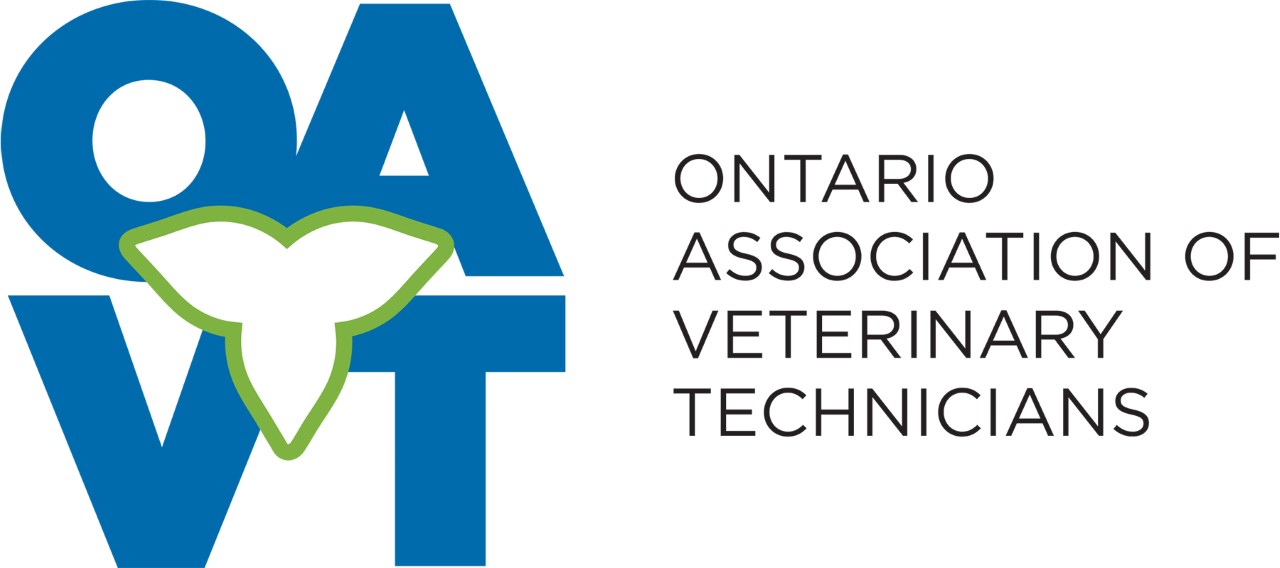
Collaborating partners include: Ontario Equestrian and Ontario Racing.
Other industry partners include: Equestrian Canada, Farm & Food Care Ontario, Intercity Insurance Services, Meaford Fire Department Training Centre, Ontario Association of Equine Practitioners, Ontario Society for the Prevention of Cruelty to Animals, Ontario Veterinary College, Professional Livestock Auditing Inc., Standardbred Canada, and Workplace Safety & Prevention Services.
This project was funded in part through the Canadian Agricultural Partnership (the Partnership), a federal-provincial-territorial initiative. The Agricultural Adaptation Council assists in the delivery of the Partnership in Ontario.

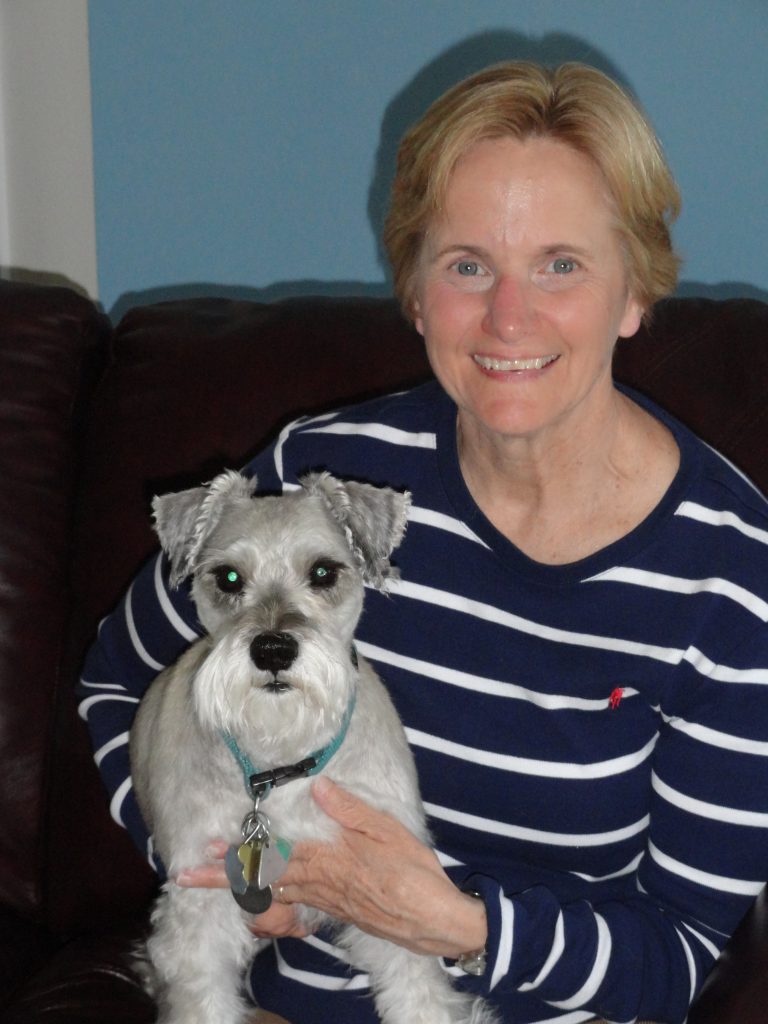 “This course was eye-opening and very informative. I learned about the realities of barn fire detection and response, and the importance of doing due diligence in planning and prevention. The best way to deal with a barn fire is to prevent it from occurring in the first place, and this course provides a wealth of information that will help you to accomplish the goal of a fire-safe facility. Every horse owner can do something to make their horse’s space safer. Every horse owner/enthusiast can benefit from the information in this course.”
“This course was eye-opening and very informative. I learned about the realities of barn fire detection and response, and the importance of doing due diligence in planning and prevention. The best way to deal with a barn fire is to prevent it from occurring in the first place, and this course provides a wealth of information that will help you to accomplish the goal of a fire-safe facility. Every horse owner can do something to make their horse’s space safer. Every horse owner/enthusiast can benefit from the information in this course.”Cathy Vogelweid, DVM (Columbia, Missouri, USA)
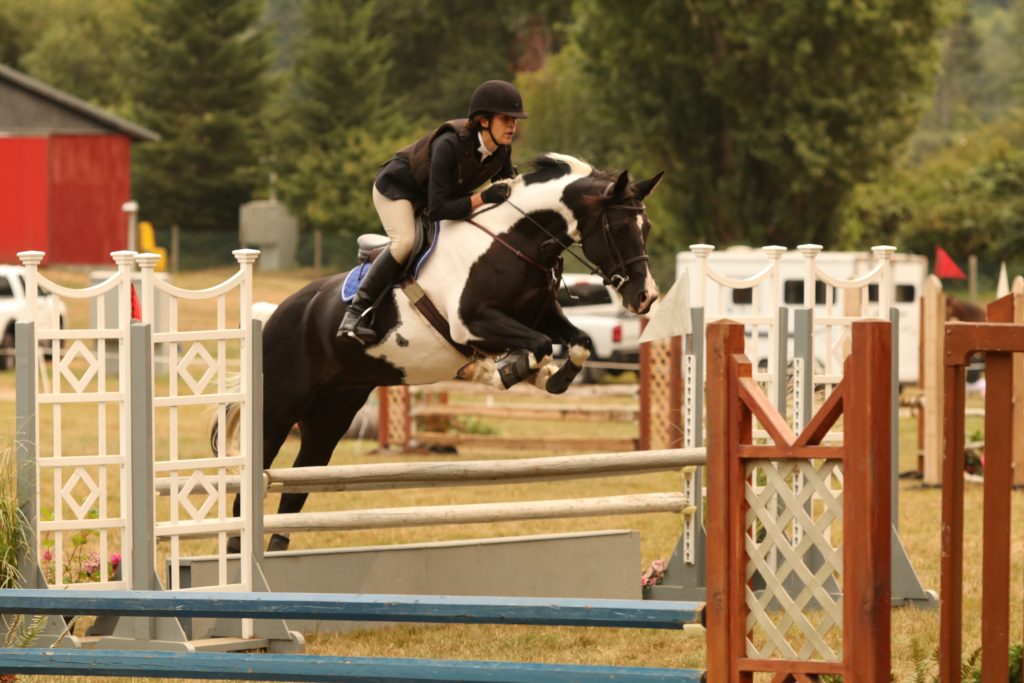 “I just completed a Fire and Emergency preparedness course through Equine Guelph. I learned a lot, the online portal was easy to navigate and the course content was helpful and thorough but not too time consuming to be obstructive to completing the course on a busy schedule. I think every person who owns a facility or manages a barn should complete this course, they have a duty to their animals and their customers to do so! But I also recommend that boarders and horse owners complete it, as you might be the one in the barn when an emergency occurs!”
“I just completed a Fire and Emergency preparedness course through Equine Guelph. I learned a lot, the online portal was easy to navigate and the course content was helpful and thorough but not too time consuming to be obstructive to completing the course on a busy schedule. I think every person who owns a facility or manages a barn should complete this course, they have a duty to their animals and their customers to do so! But I also recommend that boarders and horse owners complete it, as you might be the one in the barn when an emergency occurs!”Leah Ricketson (Campbell River, BC)
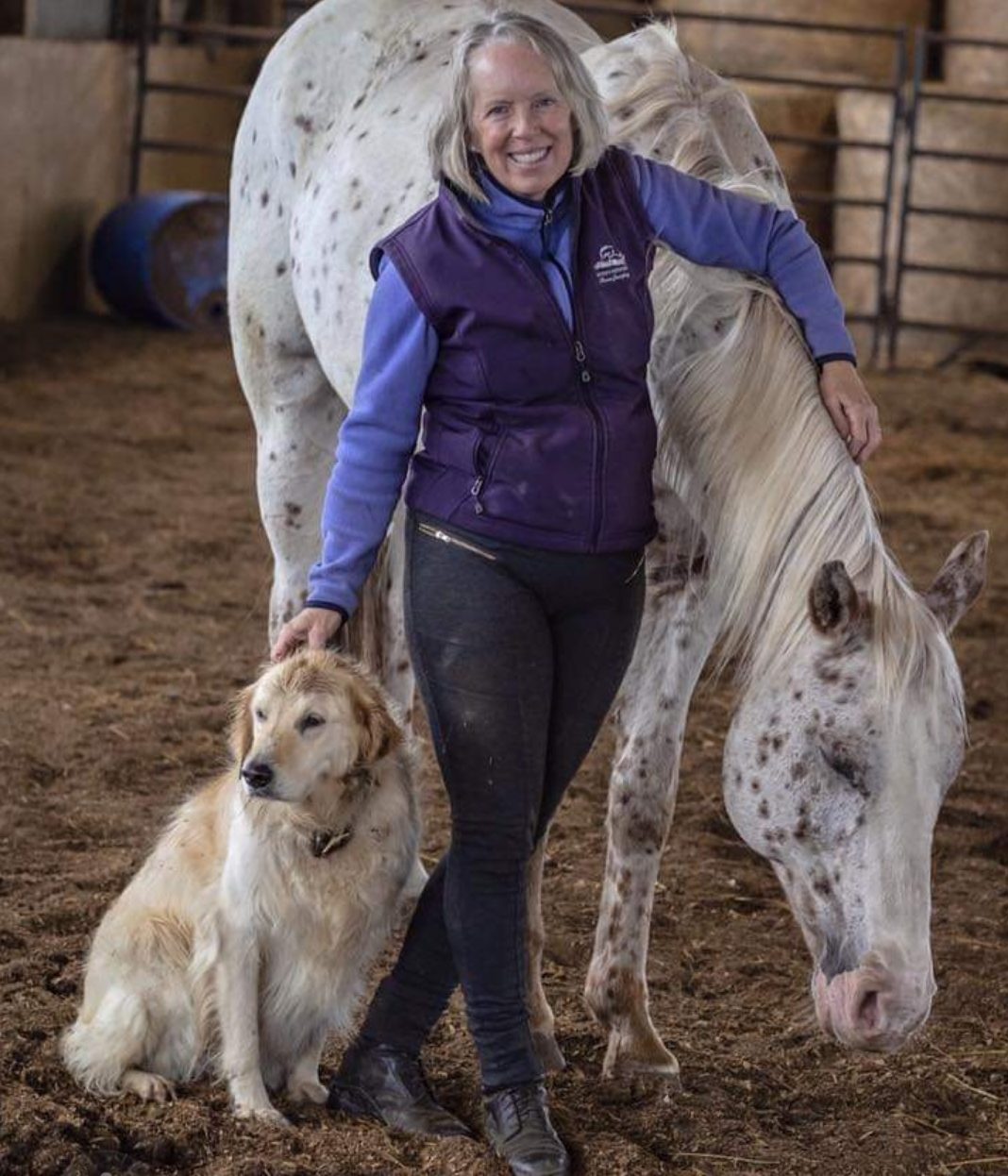
“The time it took to complete this course was a worthwhile investment. Fire prevention has often been a concern for me and this course gave me lots of practical information and charged me to take the appropriate actions I needed to, to ensure the safety of my horses and pets in case of a fire or other emergency events.”
Brenda Robson – Coach/Facility Owner, Windhurst Riding & Training Centre (Lowbanks, ON)
 “I signed up for fire and emergency preparedness as I have always had an interest in disaster and preparation. After losing a horse in a fire a couple years ago, I have become more interested in advocating for fire safety.”
“I signed up for fire and emergency preparedness as I have always had an interest in disaster and preparation. After losing a horse in a fire a couple years ago, I have become more interested in advocating for fire safety.”Kim Houlding, DVM, MS – Owner/Trainer/Breeder (Staker’s Acres, Madrid, Iowa, USA)
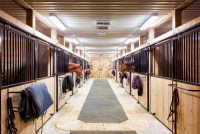
“Equine Guelph’s Fire & Emergency Preparedness course was even more helpful and interesting than I thought it would be! In a week, I learned so much from experts in and out of the horse community, and would definitely recommend it to anybody who owns or cares for horses.”
Kathryn G. – Horse Owner and Groom (Chris Delia Stables, Mohawk Racetrack)
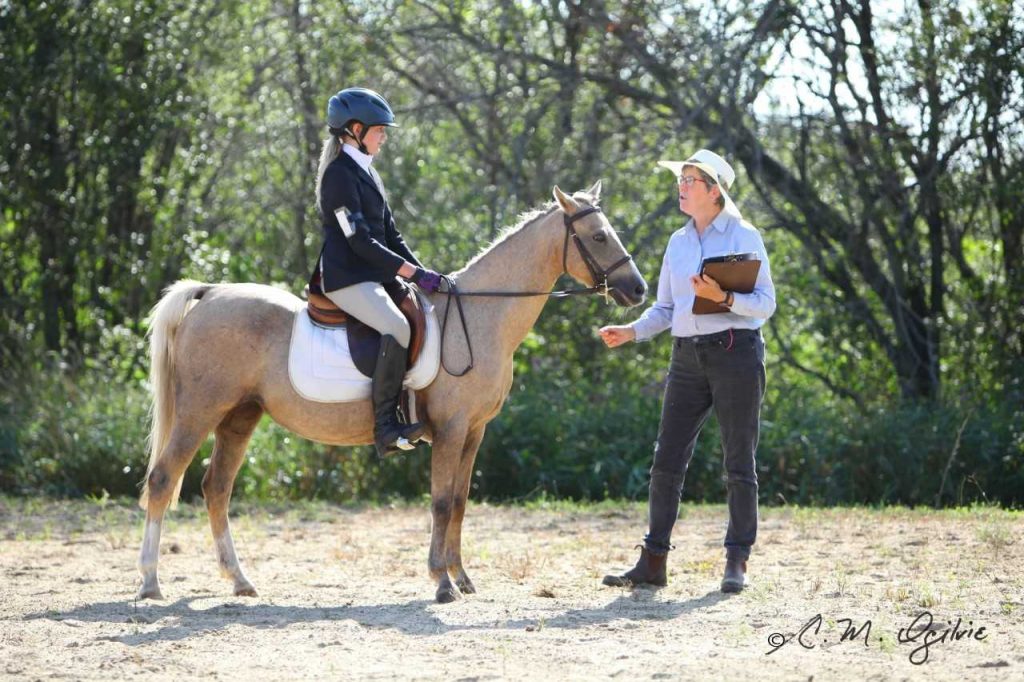 “The Fire and Emergency Preparedness course is a must for any horse facility owner or manager. Tons of useful information that could help prevent future tragedy.”
“The Fire and Emergency Preparedness course is a must for any horse facility owner or manager. Tons of useful information that could help prevent future tragedy.”
Pamela Nunn, Facility Owner and Coach (Thanksgiving Farm – Toledo, ON)
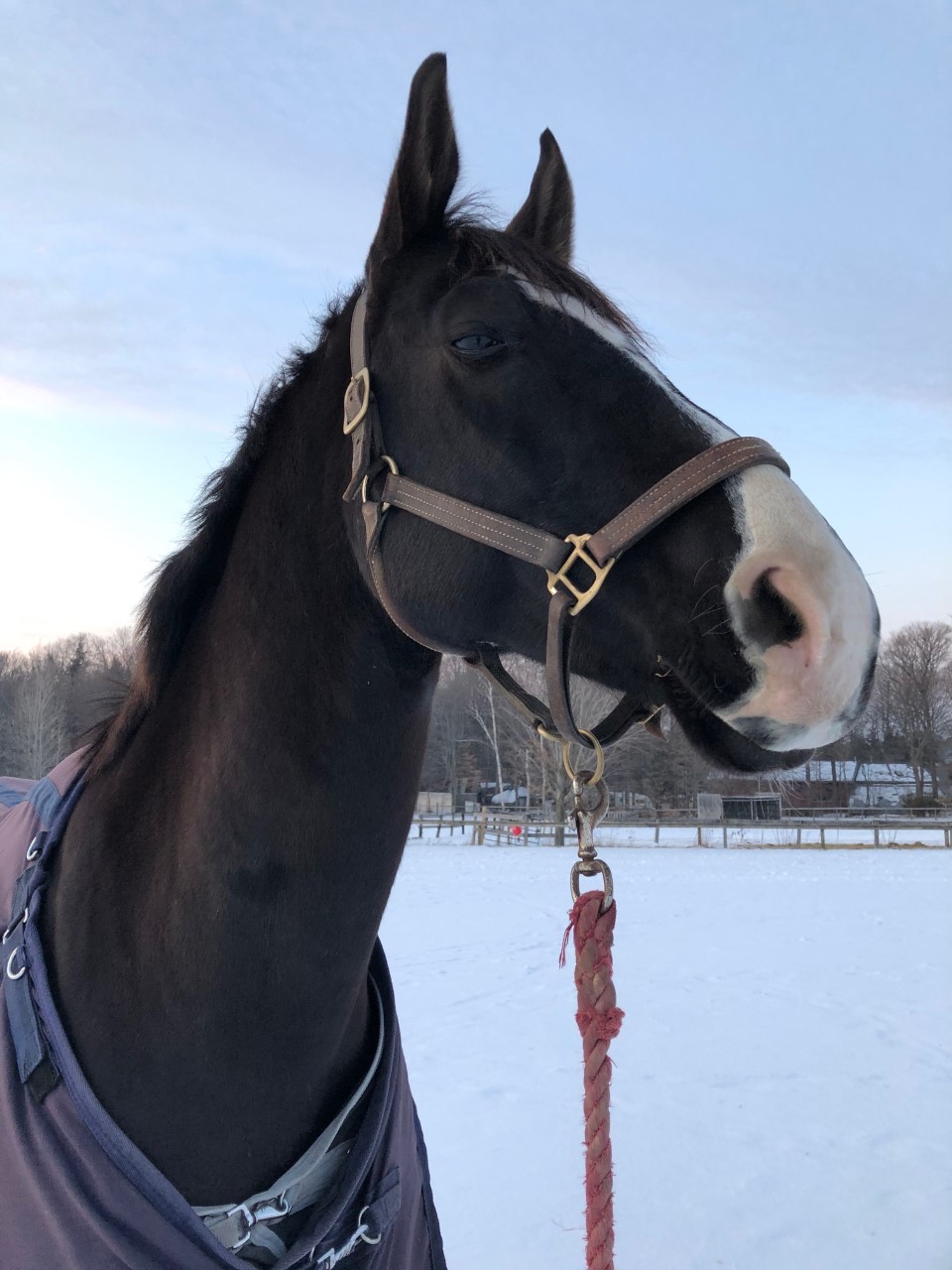
Mario Ouellet’s horse “Dakar”
“I really enjoyed this course! It was well structured and there were a lot of resources available for consulting. The instructor and experts were very helpful and positive in their feedback. I finished this course way more knowledgeable than when I started.”
Mario Ouellet, Owner (Fenwick, ON)
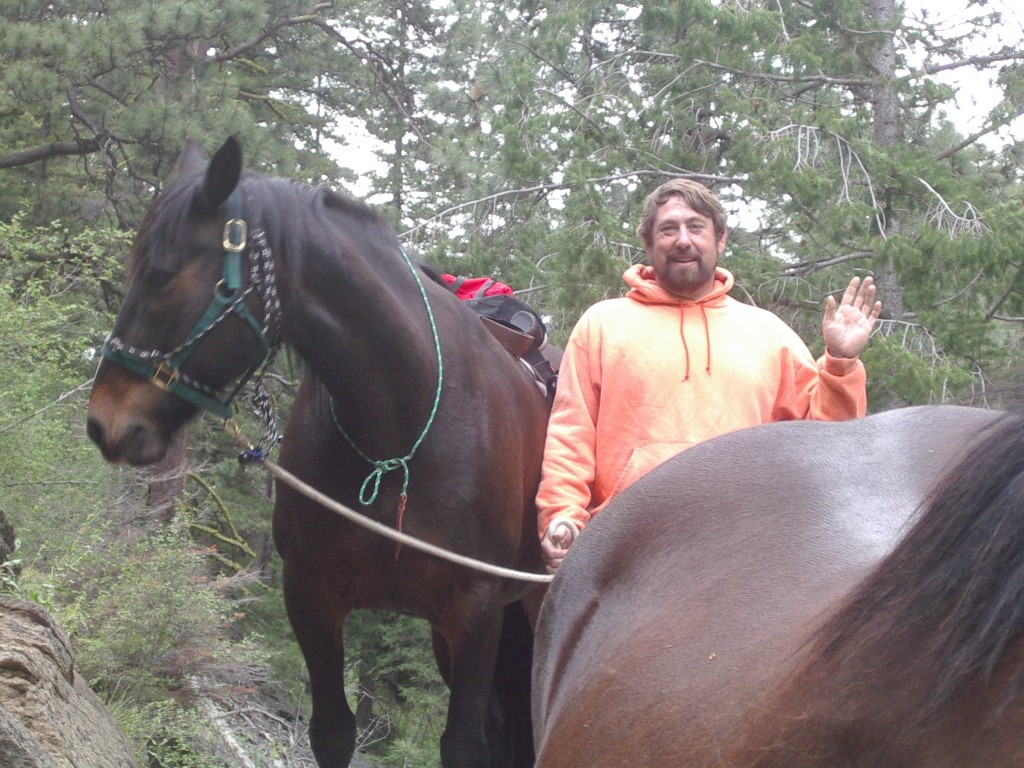 “The short courses provided in the Horse Portal as well as the 12 week courses offered by UOG are fantastic. I have taken 2 now, and feel the amount they charge for each course has been an outstanding value for the money. The information and resources they provide are high quality.”
“The short courses provided in the Horse Portal as well as the 12 week courses offered by UOG are fantastic. I have taken 2 now, and feel the amount they charge for each course has been an outstanding value for the money. The information and resources they provide are high quality.”
J. Hudson, Rescue/Facility Owner (Stevensville, Montana)
Dr. Rebecca (Gimenez) Husted 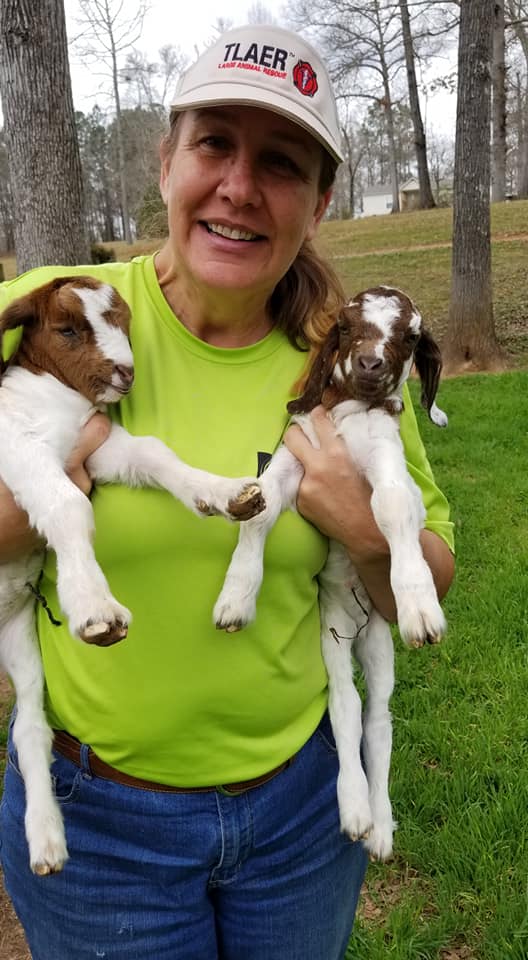
A volunteer firefighter in Gray, GA, Rebecca is doing R&D work with University of Edinburgh (UK), EKU (KY) and several veterinary schools. An internationally sought speaker and instructor, she edited the only textbook available to the fire service and veterinarians on technical rescue of large animals. Rebecca holds a BS (Wofford College) and PhD (Clemson University). Current scientific research interests include a national survey of trailer accident causality and a study of physiological responses to Technical Rescue procedures and equipment in large animals. A past Logistics Officer for FEMA’s Veterinary Medical Assistance Team (VMAT -2), decorated combat veteran and a Major in the US Army Reserves, she is active in various organizations related to disaster preparedness. She gives training worldwide in Technical Large Animal Emergency Rescue techniques, using privately owned animals that she trains for hands-on demonstrations to perform without sedation. She has published numerous critiques, techniques and journal articles on the subject of technical large animal emergency rescue. For more information please visit the TLAER website.
Eligible Partner Discounts:
Course discounts available to members of the following equine organizations: (Note: Discounts cannot be applied to Equine Emergency Certificate promotional offer.)
- Canadian Therapeutic Riding Association
- Equine Connection
- Horse Racing Alberta
- Ontario Racing
- Standardbred Canada
- Saddle Up Safely (US)


